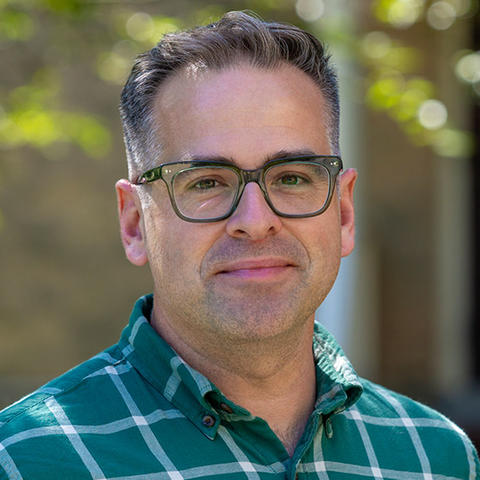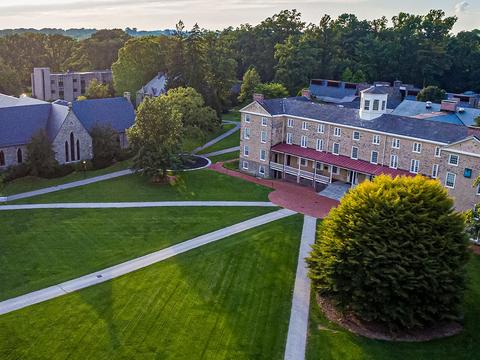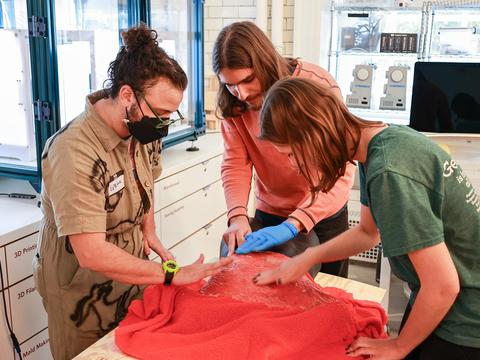Inclusive Excellence Initiative Grant Supports Haverford’s Effort to Build Capacity for Student Belonging

Photo by Holden Blanco '17.
Details
Haverford’s latest grant from the Howard Hughes Medical Institute provides $531,000 in funding to focus on student engagement, faculty development, and curricular change.
Haverford College has been awarded an Inclusive Excellence Initiative (IE3) grant from the Howard Hughes Medical Institute (HHMI).
One of 104 schools nationwide recognized for promoting inclusive excellence in introductory science courses, Haverford will use the $531,000 grant to support faculty and staff, with a focus on student engagement, faculty development, and curricular change, says Helen White, professor of environmental studies and chemistry and associate provost for curricular development and research.
Haverford is a part of a learning community cluster — one of seven — that includes schools such as Middlebury College, Furman University, Franklin & Marshall College, Empire State University, and University of California, Santa Cruz. Together, the schools will implement three coordinated projects: Faculty training in the core values of equity, social justice, inclusivity, and anti-racism; amplifying the student voice, improving the student experience, and situating students as agents of change through engagement and leadership; and engaging faculty, staff, and students in the process of making sustainable changes to curricular offerings within introductory courses.
Haverford began this process two years ago when it received a $30,000 grant from HHMI as part of the first and second stages of the IE3 grant. It was used to develop approaches to the selected challenge and to design a strategy to support that approach, exploring what it takes to build capacity for inclusion.
“We immediately launched projects that prioritized elevating the student voice,’’ says White. “Students were already working as peer mentors and tutors in collaboration with science faculty, staff, and the Office of Academic Resources. We are now working to integrate peer support structures and facilitate dialogue for change.’’
This latest grant, labeled IE3 to distinguish it from the two earlier stages, will be spread over six years (2023-28) and is aimed at fulfilling the promise created by those initial stages.
Initially intended simply to be the third installment of its Inclusive Excellence Initiative, the philanthropy pivoted when its implementation was suspended in 2020 due to the COVID-19 pandemic. Rather than use a competitive process to review the 354 submitted pre-proposals and select approximately 30 awardees as originally planned, reviewers instead identified and invited 104 institutions to form learning communities and collective ownership of an initiative reimagined to emphasize inclusion.
This change has allowed for a broader range of institutions to participate and collaborate on the same issues. The member institutions of each cluster have been working together to understand their selected challenge, identify barriers, and share ideas on how to dismantle those barriers. They are developing relationships and working to create supportive, inclusive environments in which they can share, challenge, and learn from and with one another.
“We are still in the early stages of developing specific projects to implement over the next few years,’’ says White. “We will continue to invite faculty and staff to receive funding to support their work, and to do so in conversation with our wider learning community.”
This most recent round of grants is part of an overall commitment from HHMI that totals more than $60 million distributed to the selected colleges and universities.
“Sustaining advances in diversity and inclusion requires a scientific culture that is centered on equity,” says Blanton Tolbert, HHMI’s vice president of science leadership and culture. “In science education, increasing the number of individuals from underrepresented backgrounds must go hand in hand with creating inclusive learning environments in which everyone can thrive.”
White adds, “At Haverford, we have a variety of existing programs and courses that align with IE3 goals. One key challenge we face is how to broaden and sustain these efforts. By funding ongoing projects and new initiatives, we will further inclusive excellence in the sciences.”




